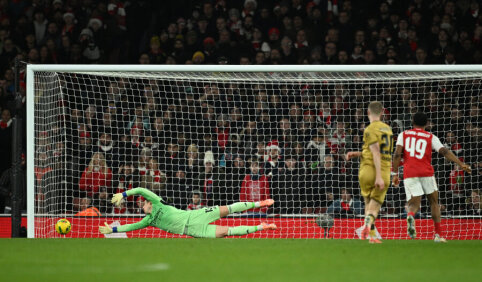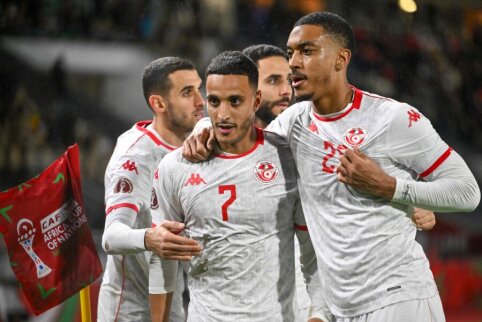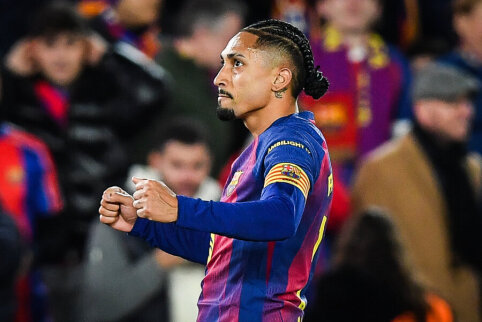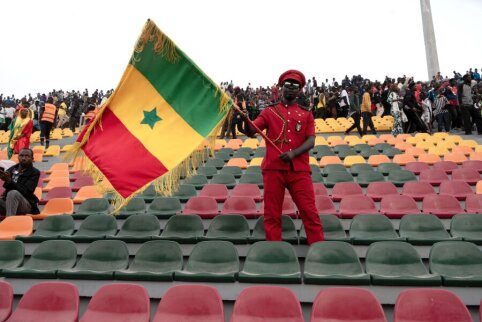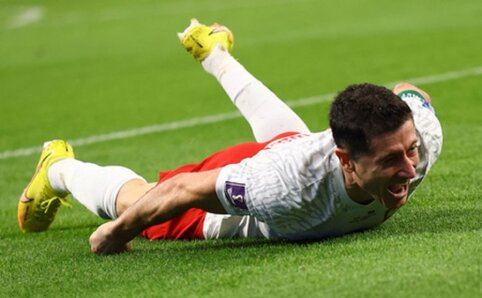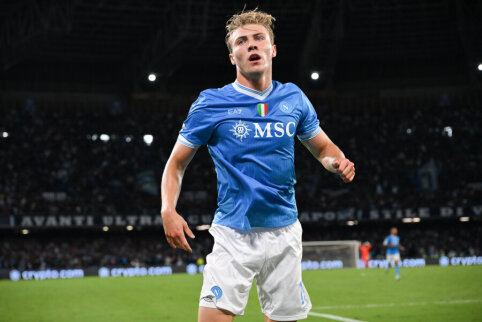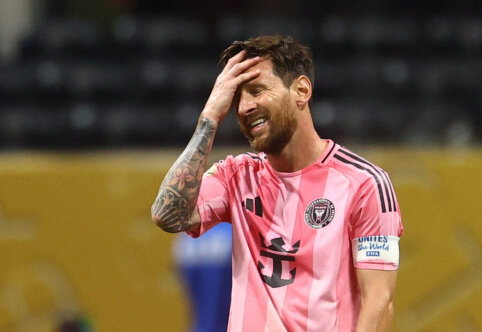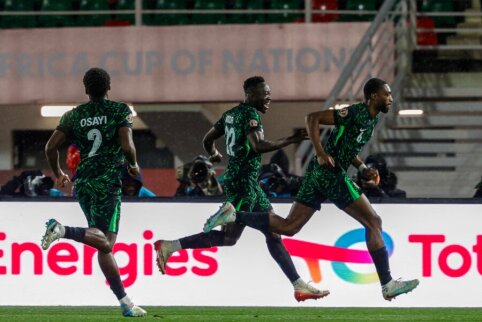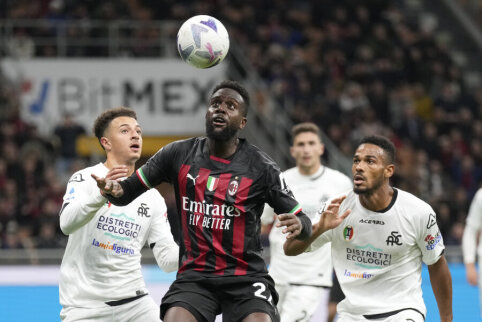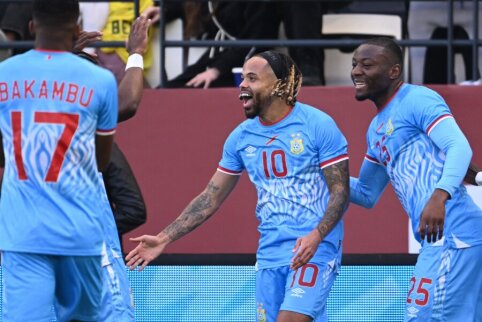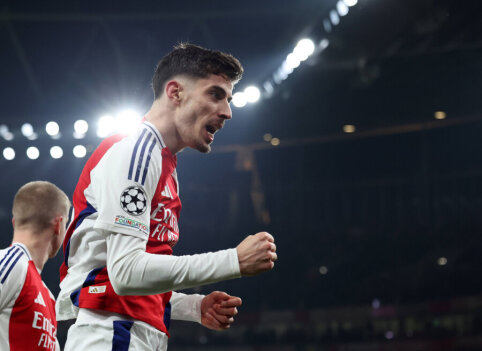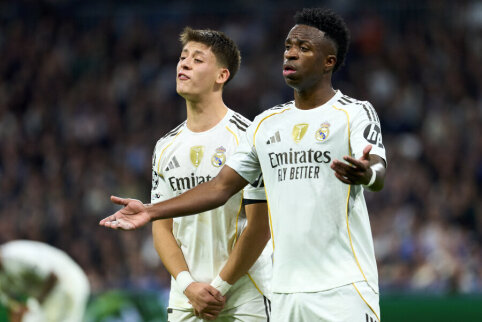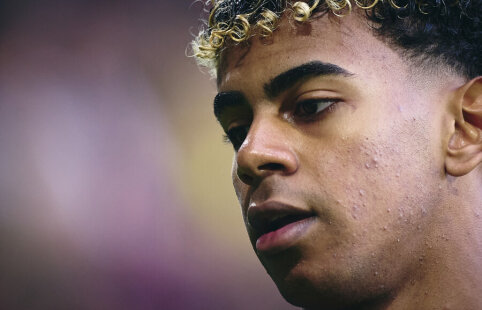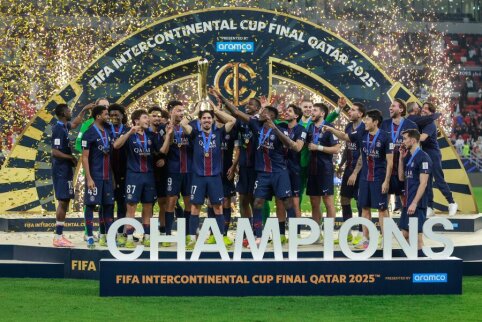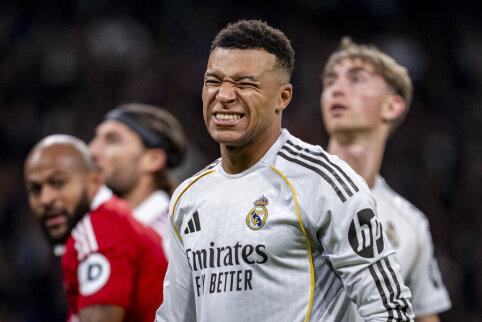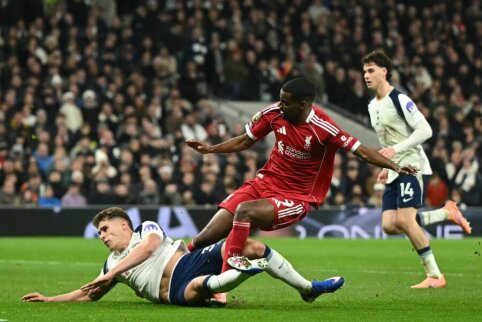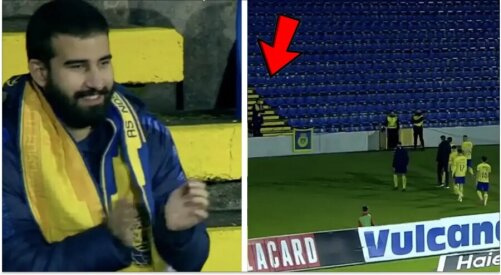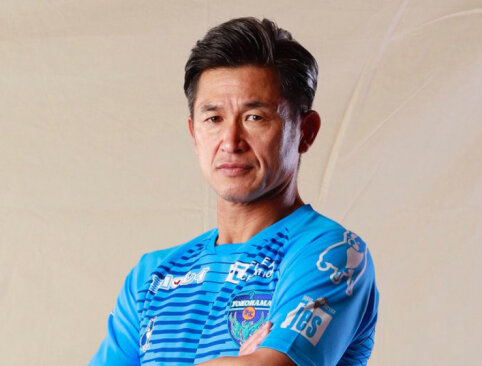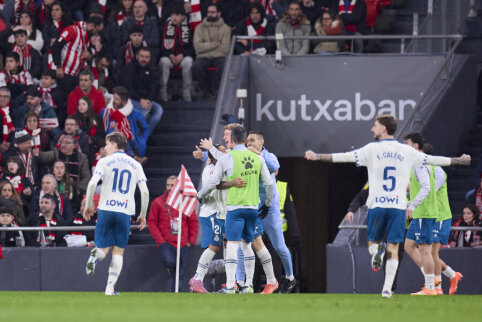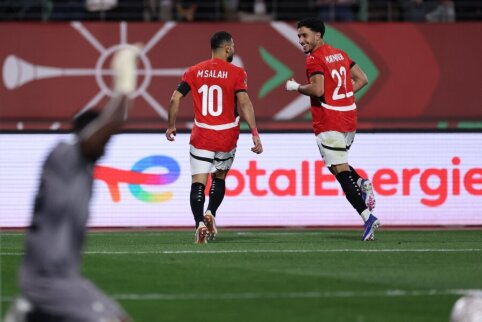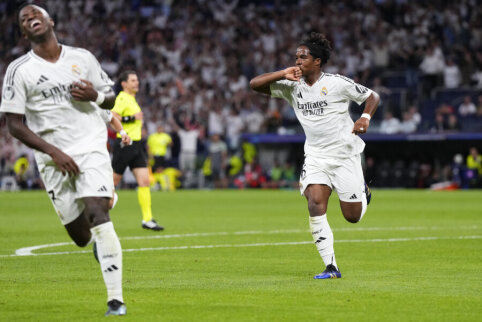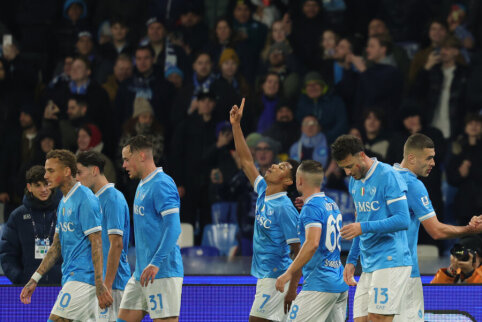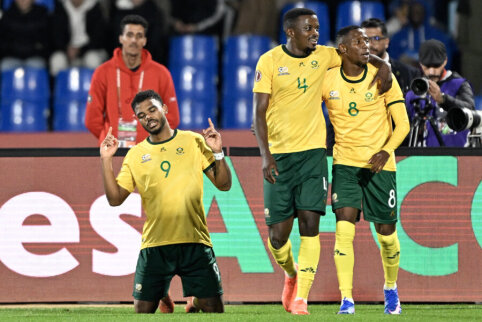 © EuroFootball.com
© EuroFootball.com
Legendary Brazilian national team player Romario became the second player in football history after Pele to score, based on his unofficial calculations, 1000 goals. On this occasion, we are publishing a short biography of the footballer sent by EuroFootball.com visitor Regimantas.
"Impressive is the fact that Romario is the second most prolific player after the 'king' Pele. Probably most football enthusiasts will agree that he is exceptional," said Regimantas in his letter.
Romario (Romario de Souza Faria) was born on January 29, 1966, in Jacarezinho, near Rio de Janeiro. At the age of nine, he was noticed by scouts from "Vasco da Gama," but they decided that the child was too small and too shy for football. Nicknamed "O Baixinho" (the little one, because of his small stature), thirteen-year-old Romario started playing for the small "Olaria" club, where in 1972 the legendary Garrincha ended his career. Romario revealed himself by scoring many goals and made the "Vasco da Gama" scouts change their minds and invite the youngster to the youth team. After a few months, the young prodigy played his first professional match for "Vasco." Over eight seasons, Romario scored 273 goals against opponents, and it did not go unnoticed - the then Selecao (Brazilian national team) coach Carlos Alberto Silva gave Romario a chance to play against Ireland in Dublin. Five days later, the young man scored his first goal for the national team against the Finnish goal.
Romario began to attract the attention of European clubs, and in 1988, he signed a contract with the Eindhoven club "PSV." The striker had a very successful period in his career in the Netherlands, scoring 174 goals in four seasons and winning several national championships. The then Eindhoven "PSV" coach, Sir Bobby Robson, described the super talent as follows: "Romario was one of the most problematic personalities I have ever worked with, but he was one of the best footballers I have ever encountered."
In 1988, Brazil won the silver medal at the Olympic Games, with Romario scoring 7 goals. Brazil once again won the "Copa America" in 1989, and Romario scored a goal in the final against Uruguay.
In 1993, Romario moved to "Barcelona" and formed a "dream" duo with the Bulgarian Hristo Stoichkov. However, he did not stay in Catalonia, despite scoring 51 goals and helping the team become champions of Spain.
1994 was the best year of Romario's career. "O Baixinho" tore through the toughest defenses in the world and led Selecao to their fourth world champions title. He played in all of Brazil's matches, scoring 5 goals, and also scored a penalty in the final shootout against Italy. Romario was recognized as the best player of the tournament. In the same year, he was named FIFA World Player of the Year, and in the 1993 elections, he came second.
After the World Cup, Romario, known as a party animal who often arrived late for training and was a "difficult" pupil for coaches, returned to Brazil briefly, joining "Flamengo." This was followed by a difficult period at the "Valencia" club (1996-1998). In 1998, he missed the World Cup due to an injury and returned to "Flamengo" until 1999. Back in Brazil, he played for "Vasco da Gama," 2002-2004 for Fluminense (a short period at Al Saad in 2003), where he was released after a conflict with the coach. Then he returned to "Vasco."
Despite his solid age of 40, Romario became the most prolific player in the Brazilian championship in 2005. Carlos Alberto Parreira, grateful for the player's contribution to Brazilian football, organized a farewell match against Guatemala, where he scored his 55th goal for the national team (only Pele and Ronaldo have scored more), having played just 70 games.
In order to score his 1000th goal, at the beginning of 2006, Romario and another 1994 World Cup champion Zinho moved to the "Miami" club in the USA and scored 18 times, later switching continents again and moving to Australia to play for "Adelaide United". However, he did not stay long in this team, and in January 2007, he returned to "Vasco da Gama," where on May 20th, he finally reached his goal and scored, according to his calculations, his 1000th goal.
Finally, some statistics.
National team career: 1988 Olympic Games silver medalist; "Copa America" champion 1989, 1997; 1994 World Cup champion, 1999 Confederations Cup champion 70 matches, 55 goals.
Club career: Dutch champion (1989, 1991), Spanish champion (1994), Brazilian Cup winner and league champion (2000).
Personal achievements: World Player of the Year in 1994, South American Footballer of the Year in 2000. He was the top scorer in the leagues where he played for seven seasons (Netherlands 1989-91, Spain 1994, Brazil 1998-99, 2005). Best player in the Dutch (1989), Brazilian (2000-01) leagues.
